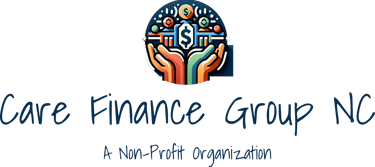Your NC Financial Awareness Non-Profit Organization

WHY NORTH CAROLINA?
Get to know North Carolina, and why its desirable.
Since the housing market exploded in 2020, the landscape for builders, sellers, and buyers has transformed dramatically. With surging demand, each group has tirelessly attempted to position themselves positively in this evolving scenario. However, as trends shift, we are likely to witness a reversal of the patterns we've seen over the past five years. Within the next three years, we can expect North Carolina to have an abundance of homes available, outpacing the number of buyers. This shift will signal the emergence of what's called a buyers' market, making North Carolina an even more desirable place to live, but for native North Carolinians this is the time to strike, and the window may not be open long; so for those eager to get involved in this transitioning market; here're some strategic steps to consider:
1. Secure Financing Early: securing financing early in the home buying process could save you both time and money, so it would be wise to get pre-approved for a mortgage as soon as possible; and remember "getting yourself pre-qualified isn't the same thing" which is important to know if you're in North Carolina. Not properly understanding key terms when it comes to a North Carolina real-estate transaction can cost you immensely. Please click the link to learn more.
2. Become Financially Aware: This means knowing your personal financial numbers before starting the home buying process; and most of the times this is done months or even years in advance.
3. Become proactive instead of re-active: Leverage your Local Knowledge as a native north-Carolinian to scout areas in advance. You may also Establish a friendship early on in the process with a realtor affiliate, while getting Pre- approve, because working with a Real Estate Agent who understands the local market can be immensely beneficial as an experienced agent can provide insights into housing trends and help identify properties that meet your needs. They also have negotiation skills and access to listings, ensuring you find the best opportunities. Click Here to get paired with an agent in your market
4. Only involve those who are contributing to your home buying process, as outside noise is one of the main reasons individuals wait, or never become homeowners. Taking advice from those who aren't experts in any of the fields we offer assistance in, can be detrimental to your future financial growth.
5. Prioritize Your Must-Haves: In a buyers' market, it’s easy to get overwhelmed with choices. Take the time to list out your priorities and non-negotiables when it comes to your new home. (Sometimes buying the least desirable home in a desirable area can be your best choice.)
6. Stay Open-Minded The ideal home might not look like you envisioned but could be the perfect fit after some renovations or updates. Stay open to exploring different properties, including those that may require some TLC. You may find that with a little investment, you can turn a fixer-upper into your dream home, often at a significantly lower price than a move-in ready option. (Starter homes can help you build an abundant amount of equity)
7. Lastly, trust the Process: Remember that buying a home can be a lengthy and emotional process. Trust yourself and the professionals you’re working with. While the market may shift, your preparation and knowledge will empower you to navigate it successfully. Ensure that you're aligning your expectations with the current realities and take your time to find a home that truly feels right for you. By following these steps, NC natives can embrace the impending buyers' market to their advantage, making for a smoother home-buying experience. With the right preparation, insights, and timely actions, you can secure a property that not only meets your needs but also positions you well for the future in a dynamic and evolving market.
In recent years, (2019-2024) the landscape of housing in North Carolina has undergone a seismic shift, impacting many local residents who have called the Tar Heel State home for their entire lives. As newcomers flood into the state in search of more affordable living conditions, long-standing residents find themselves grappling with skyrocketing prices that push them out of the very markets they grew up in. This phenomenon is not merely a matter of economics; it reflects broader trends, along with the evolving nature of work and lifestyle preferences.
The surge of individuals relocating to North Carolina can largely be attributed to its attractive lifestyle. With its mild climate, diverse landscapes and a burgeoning job market bolstered especially by tech and finance sectors, the state has become a beacon for those seeking a better quality of life. Cities like Charlotte, Raleigh, and Asheville are particularly appealing to new residents looking for a blend of urban sophistication and Southern charm.
However, this influx brings unintended consequences. As more people arrive, the demand for housing increases exponentially, leading to higher prices and a competitive market that favors new buyers, particularly those migrating from states with higher property values, are entering the scene with significantly larger financial resources. Statistics indicate that many of these out-of-state buyers possess on average, $150,000 in their accounts after selling properties elsewhere. This financial cushion allows them to make more attractive offers on homes, often exceeding what local first-time buyers can afford.
In North Carolina the supply of available homes has not kept up with the demand. The pandemic catalyzed a shift in how many individuals perceive work and residence, leading to a surge in remote work opportunities. Many workers no longer feel tethered to their original cities and are exploring relocation options, often opting for states like North Carolina due to its perceived affordability relative to larger metropolitan areas like New York or San Francisco.
As a result of NC not being able to keep up with demand, existing homes became hot commodities, driving prices upward and placing a significant burden on those who have lived in North Carolina their entire lives.
The phenomenon of newcomers entering established communities often sparks cultural shifts that, while enriching on one hand, can also lead to the dilution or even loss of local identity.
Addressing this crisis requires a multi-faceted approach. Local governments, developers, and community organizations must collaborate to strike a balance that permits growth while prioritizing the needs of long-standing residents. A viable Solution could include promoting the construction of affordable housing.
Moreover, supportive policies that would encourage financial literacy and education about homeownership opportunities for residents can empower them to navigate the tumultuous housing landscape. Such initiatives may help local families remain in their communities and maintain the fabric of their neighborhoods.
As North Carolina continues to attract new residents drawn by its charm and opportunities, the challenge of existing residents being priced out of their own communities looms larger than ever. The dynamics of housing in the state are a microcosm of a larger national trend, and solutions are necessary to ensure that the original inhabitants of these vibrant communities are not left behind. The future of North Carolina depends on finding a way to welcome newcomers while also being mindful of the needs of those who have long called it home.
Native North Carolinians can now get in the game
North Carolina is no longer our best kept secret


1) The Migration Influx
2) Economic Factors and Housing Supply
4) Potential Solutions
Conclusion
3) Environmental/ Cultural Change


Click to play Narrator
Click to play Narrator
